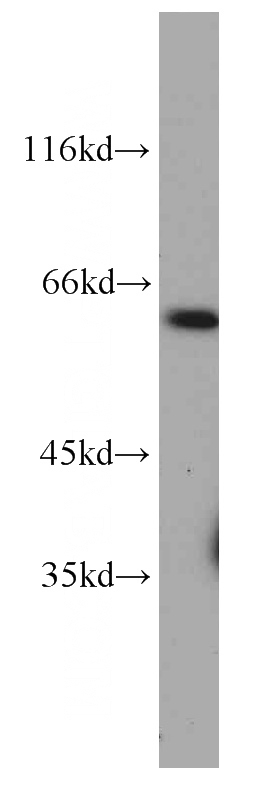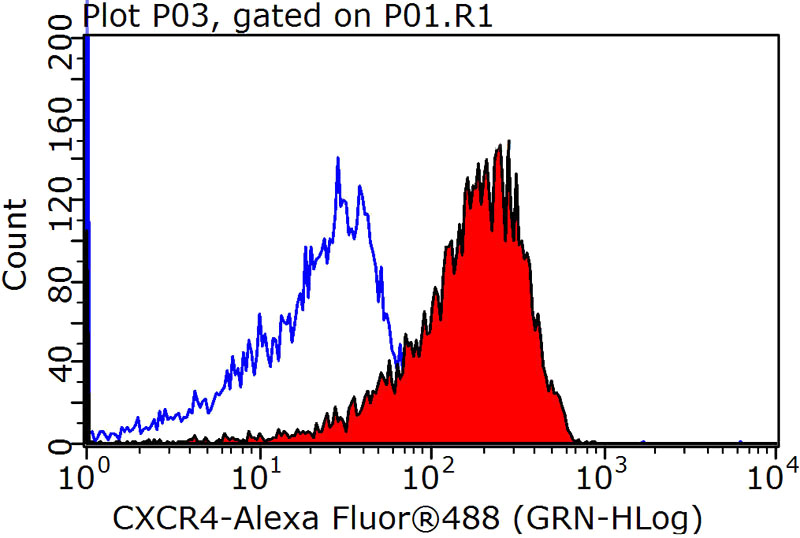-
Product Name
CXCR4 antibody
- Documents
-
Description
CXCR4 Mouse Monoclonal antibody. Positive WB detected in K562 cell, HeLa cells. Positive FC detected in Jurkat cells. Observed molecular weight by Western-blot: 60~70kd
-
Tested applications
ELISA, WB, FC
-
Species reactivity
Human, Mouse; other species not tested.
-
Alternative names
CD184 antibody; CXC R4 antibody; CXCR 4 antibody; CXCR4 antibody; CXCR4B antibody; D2S201E antibody; FB22 antibody; Fusin antibody; HM89 antibody; HSY3RR antibody; LAP3 antibody; LCR1 antibody; LESTR antibody; SDF 1 receptor antibody; WHIM antibody
-
Isotype
Mouse IgM
-
Preparation
This antibody was obtained by immunization of CXCR4 recombinant protein (Accession Number: NM_003467). Purification method: Caprylic Acid/Ammonium Sulfate Precipitation.
-
Clonality
Monoclonal
-
Formulation
PBS with 0.1% sodium azide and 50% glycerol pH 7.3.
-
Storage instructions
Store at -20℃. DO NOT ALIQUOT
-
Applications
Recommended Dilution:
WB: 1:500-1:5000
-
Validations

K-562 cells were subjected to SDS PAGE followed by western blot with Catalog No:107187(CXCR4 antibody) at dilution of 1:1000

1X10^6 Jurkat cells were stained with 0.2ug CXCR4 antibody (Catalog No:107187, red) and control antibody (blue). Fixed with 90% MeOH blocked with 3% BSA (30 min). Alexa Fluor 488-congugated AffiniPure Goat Anti-Mouse IgG(H+L) with dilution 1:1000.
-
Background
The chemokine receptor CXCR4, a 7-transmembrane protein on cell surface, acts with the CD4 protein to support HIV entry into cells. CXCR4 is highly expressed in brain and heart, white blood cells, vascular endothelial cells, and umbilical cord endothelial cells. Several CXCR4 isoforms have been identified with molecular weights of 47, 50, 62 and 98kDa. The 62-64kDa CXCR4 is predominantly ubiquitinated and is preferentially associated with CD4. This antibody recognizes the 62kd CXCR4.
-
References
- Zhang Y, Zhan Y, Zhang D. Eupolyphaga sinensis walker displays inhibition on hepatocellular carcinoma through regulating cell growth and metastasis signaling. Scientific reports. 4:5518. 2014.
- Liu R, Wang W, Dai B, Liu Y, Zhang Y. Taspine derivative TAS9 regulates cell growth and metastasis of human hepatocellular carcinoma. Molecular medicine reports. 12(5):7735-41. 2015.
Related Products / Services
Please note: All products are "FOR RESEARCH USE ONLY AND ARE NOT INTENDED FOR DIAGNOSTIC OR THERAPEUTIC USE"
